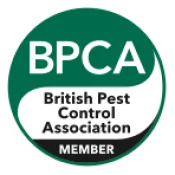Fly Pest Control Services

Fly Pest Control Services
Flies are a perennial problem, especially in the warmer months and they can quickly turn from a nuisance into a genuine hygiene risk. With over 120,000 fly species worldwide, and over 7000 in the UK, these pests are prolific breeders and persistent visitors to UK homes and businesses. While most flies don’t bite, many feed by vomiting saliva onto food and then sucking up the liquid. This behaviour can spread food-borne illnesses such as salmonella and E. coli. They also lay eggs indoors which can lead to outbreaks of maggots.
If you’re noticing an increase in flies, unpleasant odours, or clusters of insects around windows and loft spaces, we can help. iX5 Pest Control provides fast, effective and discreet fly control for domestic and commercial properties.
Why flies are more than a nuisance
- Food contamination: By regurgitating and feeding on liquids, flies can transfer harmful bacteria to food preparation areas and exposed foodstuffs.
- Serious health risks: Flies are known carriers of diseases including salmonella, E. coli, dysentery, cholera and typhoid fever, making infestations especially dangerous in kitchens and commercial food-handling environments.
- Rapid lifecycle: An average housefly lives around 30 days — long enough to breed rapidly and establish an ongoing problem.
- Maggot outbreaks: Eggs laid on waste, pet food, or even unnoticed spillages can hatch into maggots in warm conditions, leading to distress and additional cleaning challenges.
- Seasonal surges: Warmer temperatures in spring and summer accelerate breeding. Cluster flies, in particular, congregate in vast numbers in properties during the autumn due to their lifecycle.
iX5 Pest Control
- 7 Days A Week Service
- Weekend & Evening Appointments
- Domestic & Commercial Pest Control
- Contactless Payment Methods
- Free Initial Survey
Additional Services
The fly lifecycle: why infestations grow quickly
Flies multiply at astonishing speed, making swift control essential. Their lifecycle follows four rapid stages, although the exact time periods and food sources etc of each stage vary for different fly species:
- Eggs: Laid on waste, food, organic material or in other locations; can hatch within 24 hours in warm conditions.
- Larvae (maggots): Feed on organic matter for 3–5 days.
- Pupae: A short transitional stage (3–6 days).
- Adults: Ready to breed almost immediately, with females laying hundreds of eggs in their lifetime.
This fast turnaround means small problems can escalate into full infestations within days.
Signs you have a fly problem
- Frequent sightings of flies around kitchens, bins, pet feeding areas, drains or windowsills
- Clusters of flies in lofts, roof voids or upper floor rooms (common with cluster flies)
- Small dark spots (fly faeces) on walls, ceilings or light fittings
- Maggots found in bins, waste areas or around drains
- Musty/organic odours near waste or hard-to-clean gaps and crevices
Common fly types we can help with
- Houseflies & lesser houseflies: Rapid breeders attracted to waste and food residues.
- Bluebottles/greenbottles (blowflies): Often linked to decaying organic matter; notable for carrying bacteria.
- Fruit/vinegar flies: Associated with fermenting fruit, sugary residues and drains.
- Drain flies (filter flies): Breed in organic build-up within drains and traps.
- Cluster flies: Gather in large numbers in roof voids and upper rooms, returning seasonally to the same buildings.
Our fly control process
- Initial survey
We identify the fly species, breeding sites and entry points, and assess food-handling, waste-management or other risks. - Targeted treatment plan
With some of the common fly species, there is no need for any treatment, as removing the root cause of any infestation will resolve all activity. Depending on species and setting, we may use a combination of ULV space treatments, residual surface applications, larvicides for breeding sites, and professional-grade Electronic Fly Killers (EFKs) in commercial environments. - Proofing & hygiene recommendations
We advise on practical, long-term prevention steps, from fly screens and door-strip systems to waste-area improvements and drain hygiene. - Follow-up & monitoring
Where required, we schedule follow-up visits to ensure activity is resolved and provide documentation for compliance (ideal for food businesses).
Seasonal advice for fly prevention
- Summer: Keep food covered at all times, and particularly during BBQs, picnics and outdoor dining. Keep lids on bins and empty them frequently. Wash recycling containers to remove food residues.
- Autumn & Winter: Watch for cluster flies in lofts and upper rooms. Seal small entry points around windows, eaves and roof spaces to reduce infestations.
Taking action early each season helps prevent larger outbreaks.
Immediate steps you can take
- Install fly screens on doors and windows to prevent entry.
- Keep bin lids tightly closed and clean bins regularly.
- Wipe up food debris and spillages promptly, store food in sealed containers.
- Maintain good drain hygiene to remove organic build-up.
- Clear pet feeding areas after use and clean recycling/waste caddies frequently.
- In commercial kitchens, service EFKs regularly and keep a log for compliance.
For related issues, explore our cockroach pest control services and ant pest control services.

Why choose iX5 Pest Control?
- Qualified, insured & BPCA-certified technicians — with TrustMark registration
- Local experts with deep knowledge of seasonal and structural factors in the region
- Transparent, fixed pricing — no hidden extras
- Tailored plans for homes, landlords, schools and food businesses
- Written Report after every visit
- Documentation & advice to support EHO compliance where required
Service areas
We provide fly pest control across Northamptonshire and beyond, including:
Northampton, Milton Keynes, Daventry, Rugby, Market Harborough, Towcester, Brackley, Wellingborough, Kettering, Corby, Olney, and all surrounding areas.
Get in touch
Think you have a fly problem? The sooner you act, the easier it is to break the breeding cycle.
Call: 01604 328545
Email: [email protected]
Or use our simple contact form below.
iX5 Pest Control – Trusted with results!
Fly Pest Control FAQs
Most frequent questions and answers
Do flies bite?
Most common UK houseflies don’t bite. However, their feeding method, regurgitating saliva onto food and re-ingesting it, can transmit bacteria and cause food poisoning risks.
What’s the difference between houseflies and cluster flies?
Houseflies are linked to food and waste and are a higher hygiene risk. Cluster flies gather in large numbers in lofts and upper rooms during the autumn and hibernate there over winter; they pose little food-contamination risk but can be a nuisance.
Are treatments safe for children and pets?
Yes. We use professional-grade products designed for safe application. Our technicians will advise if you need to vacate during treatment and how soon you can re-enter.
What’s the fastest way to get rid of flies in summer?
Act immediately: keep bins sealed, cover food, fit fly screens, and call a professional if numbers rise quickly — especially in kitchens or food-handling areas.
Why do I get maggots in my bin?
Flies lay eggs on organic waste. In warm weather those eggs hatch quickly into maggots. Keep bin lids shut, bag food waste, clean bins frequently and rinse recycling.
How long does a fly treatment take?
Most treatments take between 30 minutes and 2 hours, depending on the size of the property and severity of the infestation. Commercial premises may require multiple visits.
Can cluster flies damage my property?
Cluster flies don’t damage structures, but their presence can stain walls and ceilings, and large numbers are unpleasant.









